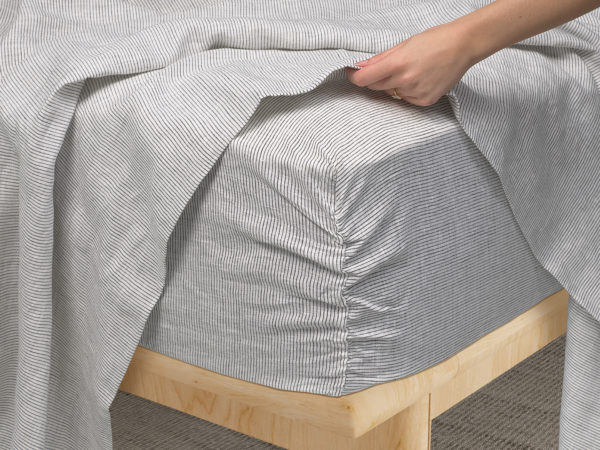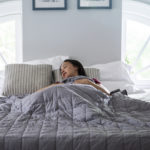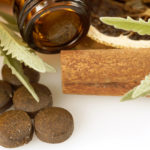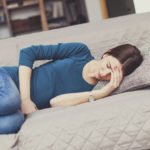How Temperature Impacts Our Sleep

Have you ever woken up too hot in the middle of the night and struggled to fall back to sleep? Warmer temperatures often cause discomfort and restlessness while attempting to sleep. Additionally, this warmth can lead to dehydration and cause fatigue. Bottom line: sleeping at the wrong temperature can negatively impact your quality of sleep.
The most common issue is sleeping too hot. While the exact temperature for ideal sleep is often debated, a temperature ranging from 62-67°F (16-19°C) is recommended.
During sleep, our bodies naturally tend to drop a couple of degrees. This helps us to comfortably fall and stay asleep without expending too much energy. Over the years, we’ve developed numerous ways to help our bodies stay at this cooler, more ideal sleep temperature throughout the night. Attending to your sleep environment can help keep you cool and achieve the deep, restful sleep your body needs.
Bedding for Cooler Sleep
If you tend to sleep on the warmer side, looking for bedding that has cooling or cool-touch properties is ideal. Cool-touch sheets can provide a comfortably refreshing sleep surface to help reduce body heat as you’re falling asleep.
Another key benefit to look for when you’re shopping for new bedding is thermoregulation. Some all-natural fibers, such as hemp, are naturally thermoregulating. Thermoregulating bedding not only keeps you cool during the summer but also can keep you warm in winter by regulating and maintaining body temperature, making it ideal for year-round use.
Beyond cooling and thermoregulating properties, you can also look for bedding with lightweight, breathable, or moisture-wicking benefits that can keep you cool and dry throughout the night.
Other Tips for Cooler Sleep
You can also make other environmental changes to your bedroom and sleep area beyond bedding that can keep you at the ideal temperature throughout the night.
- Keep a fan in your room to help adjust the temperature
- Set your thermostat down a few degrees an hour or two before going to bed
- Avoid hot activities (such as exercising) before bed
- Don’t ingest high-sugar foods before bed as they can increase body temperature
- Wear breathable pajamas that won’t trap body heat
Sources
“Best Temperature for Sleep.” Sleep Foundation. sleepfoundation/bedroom-environment/best-temperature-for-sleep
“Effects of Thermal Environment on Sleep and Circadian Rhythm.” National Library of Medicine. pmc.ncbi.nlm.nih/articles/PMC3427038/
“The Temperature Dependence of Sleep.” Frontiers in Neuroscience. frontiersin/journals/neuroscience/articles/10.3389/fnins.2019.00336/full
“What’s the Best Temperature for Sleep?” Cleveland Clinic. health.clevelandclinic/what-is-the-ideal-sleeping-temperature-for-my-bedroom
Today’s Health Topics
Editor's Pick
Health Focus
Ask Dr. Weil's Q&A











